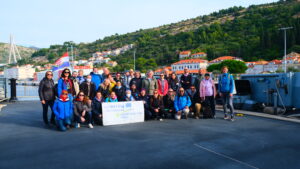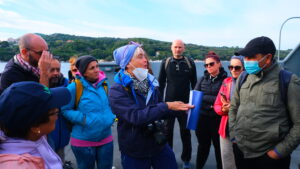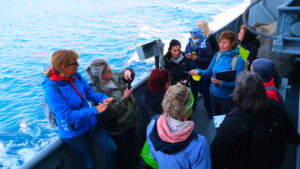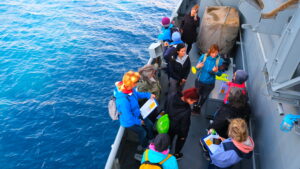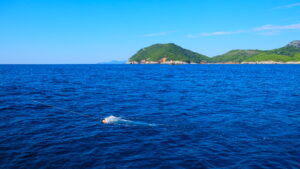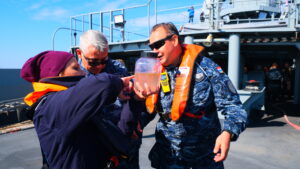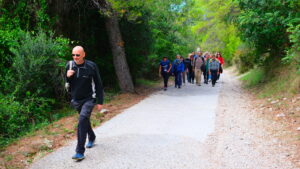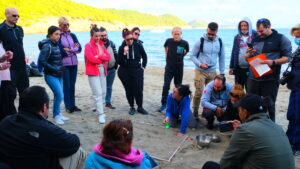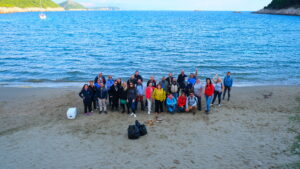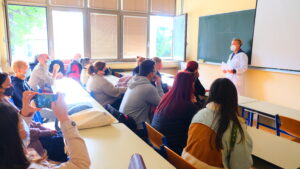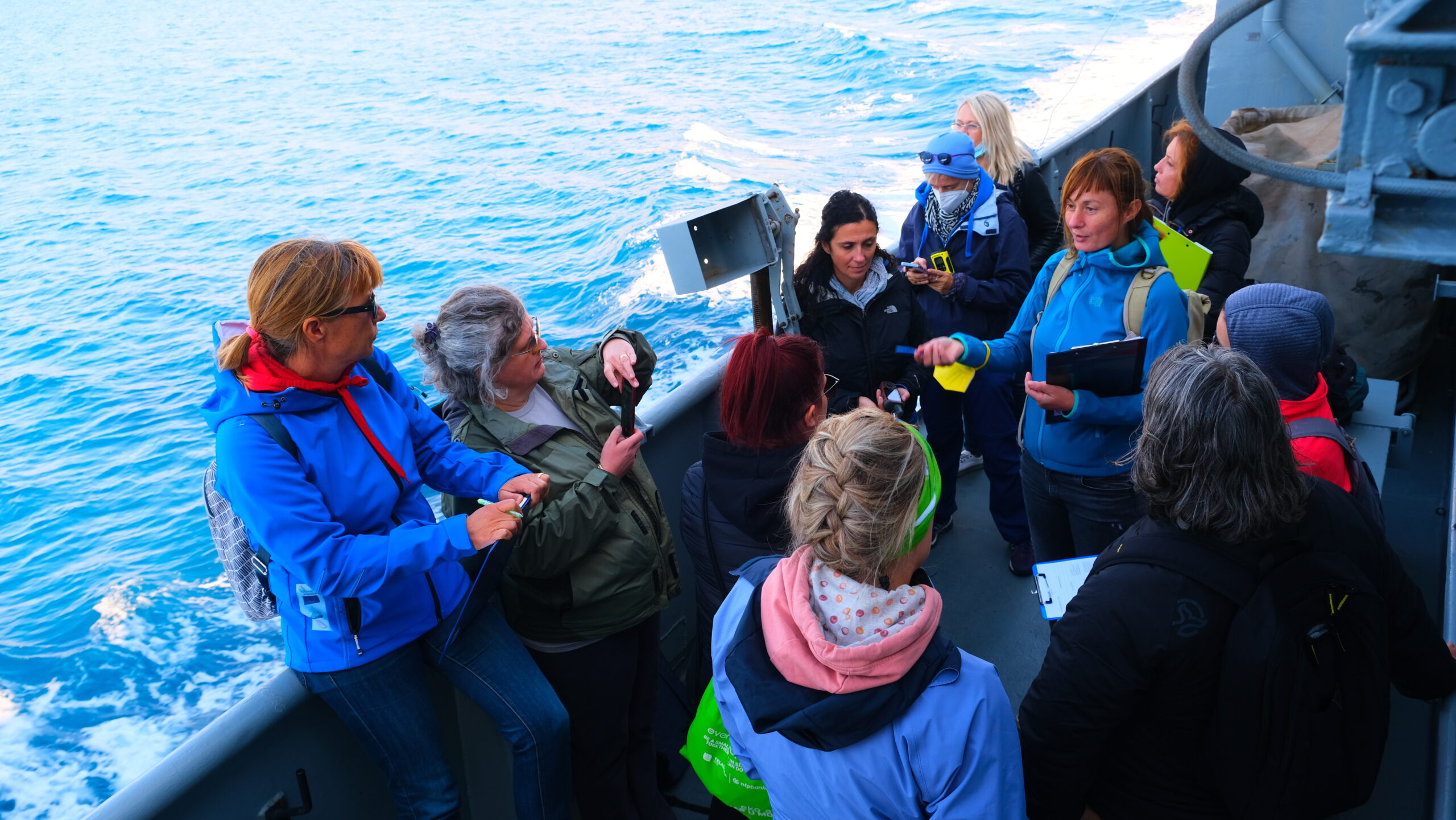 It has been almost 4 years since Plastic Busters MPAs started on its journey to address marine litter in Mediterranean MPAs. and the project has achieved a lot: a first-of-its-kind comprehensive diagnostic analysis of the presence and effects of marine litter in Mediterranean MPAs; marine litter monitoring and assessment tools and approaches; showcases and guidelines of best practice measures particularly focused on slashing single-use plastics in Mediterranean MPAs, and so much more.
It has been almost 4 years since Plastic Busters MPAs started on its journey to address marine litter in Mediterranean MPAs. and the project has achieved a lot: a first-of-its-kind comprehensive diagnostic analysis of the presence and effects of marine litter in Mediterranean MPAs; marine litter monitoring and assessment tools and approaches; showcases and guidelines of best practice measures particularly focused on slashing single-use plastics in Mediterranean MPAs, and so much more.
Seeking to share its experiences and knowledge products and catalyse replication and upscaling actions addressing the entire management cycle of marine litter, the Plastic Busters MPAs team organized in Dubrovnik, from the 12th till the 14th of October 2021, two back-to-back events:
- A hybrid capitalization conference featuring the Plastic Busters MPAs results and achievements. The half-day conference brought together some 70 participants (40 attended physically, 30 attended virtually) to review and discuss the project advances and achievements addressing the entire management cycle of marine litter, from monitoring and assessment to prevention and mitigation. The event brought forward the recent policy and scientific advances with regards to marine litter in the region, provided a synthesis of the Plastic Busters MPAs marine litter outputs and results, highlighted local experiences and lessons learned, and created the enabling conditions for building synergies and fostering exchanges among stakeholders active on the science-policy-society interface.
- A hands-on regional training featuring the Plastic Busters MPAs marine litter monitoring protocols. The two-day event immersed some 40 participants in field and laboratory activities to showcase the project’s harmonized approaches on how monitor and assess the presence and effects of marine litter. Trainees got acquainted and familiarized with state-of-play methodologies and approaches to monitor and assess marine litter on beaches, the sea surface, the sea floor and in biota. When it comes to the latter, special emphasis was placed on featuring protocols that can be used for studying and assessing the impact of marine litter on living organisms. The trainees participated in marine litter surveys at sea and on the coastline of the captivating archipelagos of the Elaphiti Islands, while they also had the opportunity to analyse microplastics and biota samples at the labs of the University of Dubrovnik.
The capitalization and capacity building activities were implemented by the University of Siena, MIO-ECSDE and the Ministry of Economy and Sustainable Development of the Republic of Croatia, in collaboration with the support of ISPRA, the University of Split, the University of Dubrovnik and the Coast Guard of the Republic of Croatia that hosted the participants on the Faust Vrančić vessel. The event’s participants came from Albania, Algeria, Croatia, France, Greece, Italy, Montenegro, Morocco, Spain, Slovenia and Tunisia.
The agendas and presentations of the events are listed below.
The Plastic Busters MPAs hybrid capitalization conference
Session 1: Setting the scene
- EU policy advances on marine litter | G. Hanke, EC & JRC, MSFD TGML
- Barcelona Convention policy advances on marine litter | Ch. Ioakeimidis, UNEP/MAP
Session 2: The Plastic Busters MPAs marine litter monitoring actions
- Synthesis of the Plastic Busters MPAs marine litter monitoring and assessment outputs and results | C. Fossi, UNISI
- The Plastic Busters MPAs local experiences on monitoring: National Marine Park of Zakynthos, Greece | C. Tsangaris, HCMR
- The Plastic Busters MPAs local experiences on monitoring: Tuscan Archipelago National Park, Italy | C. Panti, UNISI
- The Plastic Busters MPAs local experiences on monitoring: Cabrera National Park, Spain | S. Deudero, IEO
- The Plastic Busters MPAs local experiences on monitoring: National Park of Brijuni, Croatia | M. Smodlaka, Rudjer Boskovic Institute
Session 3: The Plastic Busters MPAs marine litter prevention and mitigation actions
- Synthesis of the Plastic Busters MPAs marine litter prevention and mitigation outputs and results | Th. Vlachogianni, MIO-ECSDE
- The Plastic Busters MPAs demo on phasing out SUPs in the tourism sector| B. Knez, Strunjan Landscape Park (Slovenia)
- The Plastic Busters MPAs demo on developing a network of reverse vending machines | G. Garcia Hoyo, National Park of Cabo de Gata Nijar (Spain)
- The Plastic Busters MPAs demo on establishing a reusable cup delivery system for beach bars | H. Dimitriadis, National Marine Park of Zakynthos (Greece)
- The Plastic Busters MPAs demo on establishing a reusable cup delivery system for festivals | Abril Ferrer, Ebro Delta National Park (Spain)
Session 4: Creating synergies & fostering exchanges with relevant initiatives and projects
- The MARLESS project | A. Torresan, ARPAV
- The MARGNET project | J. Basta, Blue World
- The CAPIMED-ISLANDS project | M. Outters, SCP/RAC
- The DEFISHGEAR project | P. Tutman, IOF
***
The Plastic Busters MPAs hands-on regional training
- Overview of the Plastic Busters MPAs marine litter monitoring strategy | C. Fossi, UNISI
- The Plastic Busters MPAs approach to monitor marine litter on beaches (macrolitter, microlitter) | Th. Vlachogianni. MIO-ECSDE
- The Plastic Busters MPAs approach to monitor marine litter on the sea surface (macrolitter, microlitter) | C. Panti, UNISI
- The Plastic Busters MPAs approach to monitor marine litter on the seafloor (macrolitter) | M. Baini, UNISI
- The Plastic Busters MPAs approach to monitor marine litter in biota | I. Caliani. UNISI
Read in French here
